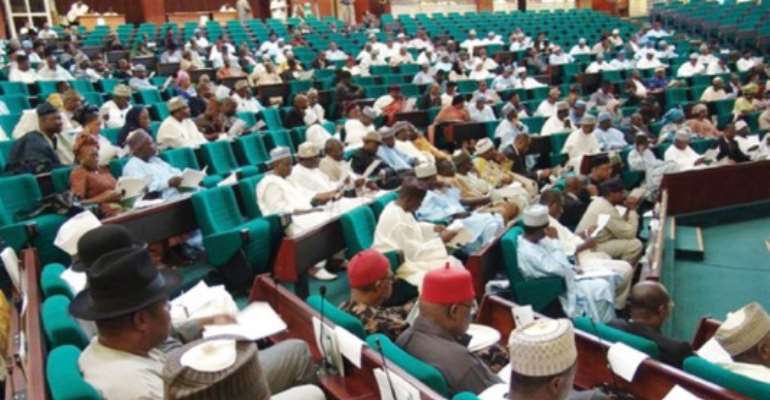Senate Passes Electoral Act Without Contentious Section 87

ABUJA, Dec 14, (THEWILL) - The Senate today made a volte face and caved in to pressures from the public, PDP leadership and influential state governors when it passed the controversial Electoral Act Amendment Bill, without the contentious Section 87.
They dropped the section in its entirety amid public protest at the entrance to the National Assembly.
The effort was however an anti-climax to a ding-dong battle between federal lawmakers and members of the public on one hand and between them and state governors who had promised brimstone and fire if the President accents to the bill.
The troubled Section 87, particularly subsection 11, which stoked dissention, especially from the Peoples Democratic Party (PDP) state governors, was aimed at making members of the National Assembly automatic members of the National Executive Council (NEC) of their respective political parties. Specifically Subsection 11b(i, ii) states that “The membership of the National Executive Committee (NEC) of a political party shall in addition to what is provided in its constitution include the following; (i) one Senator per State and the FCT, where applicable and (ii) one member of the House of Representatives per state and FCT where applicable.”
The volte-face was an anti-climax to the logjam, which trailed the passage of the bill.
Deputy Senate President, Senator Ike Ekweremadu later told a press conference that they felt that the issue of the National Executive Committee (NEC) of political parties needs to be settled once and for all, but had to drop it since “it is heating the system.”
"We felt that the issue of the National Executive Committee (NEC) of the meeting needs to be settled once and for all, though our colleagues in the House of Representatives have passed it bringing in members of the National Assembly into the National Executive Committee of the respective parties and then introduced some other measures aimed at bringing internal democracy to political parties, but the essence of having two chambers parliament, what you called bi-camera parliament is such that if there are issues as fundamental as this and then there are reactions from the public as we have in this one, then we have need to have another look at it, so I think that the wisdom has paid off on this.
"So what we have done this afternoon is to have another look at it and we felt well if this is heating the system we can as well drop it, so basically we have removed that aspect dealing with the National Executive Committee of the parties, such that the parties will now determine those who will be the members of the National Executive Committee.
"We are hopeful that our respective parties or the remaining parties would find it in their wisdom to bring in members of the National Assembly to their respective NEC. I am aware that at least 90 percent of the political parties have members of the National Assembly as members of the NEC, it is only PDP and one or two other parties that are yet to do so, but we believe that with what has happened that the PDP and the remaining parties will see the wisdom in dealing with this, in respect of their constitutions not necessarily through the act of National Assembly.”
Also Ekweremadu explained that there were some mistakes and inconsistencies in the electoral Act 2010 that needs to be corrected.
"Basically what we have done is to tidy some mistakes and inconsistencies in the electoral Act of 2010, because we discovered after the printing that there were some errors, mistakes and some inconsistencies in the cross references, some places they were referring to Section 31 talks about Section 30, Section 9 talking about 11 and all that. So we decided to use the opportunity of this amendment to clean it up so that it will be elegant,” the Deputy Senate President said.
However, he disclosed that aside the other amendments, the Senate amended the section that empowers the Independent National Electoral Commission (INEC) to disqualify or reject names of candidates for any reason whatsoever.
"We also provided in this amendment that the National Electoral Commission is not in the position to disqualify candidates or to reject names of candidates for any reason whatsoever, only the court can do so and then we dealt with the issue of Electoral Petitions and one of the key provision there, is that if you have preliminary objection in respect of electoral matter during the election petition, you can bring it in but the court will not take it together with substantive matter and then judgment will be based on all that.
"These are part of the measures to reduce the time spent in pursuing the election petition. We are hopeful that the time lines we have provided now will help us to deal with the issue of election petition expeditiously and then people will be able to know their fate once they are taken to the tribunal and then even those who have gone to the tribunal will also know the position of their matter. We believe this will help us to deepen the democracy," he added.
